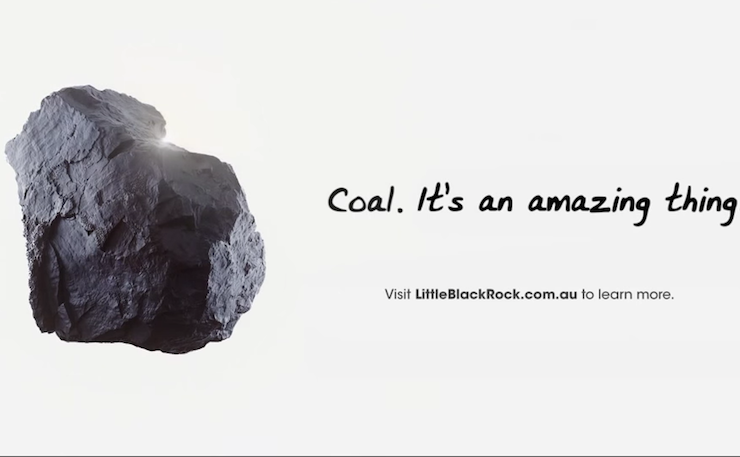Chair of Population Health at the School of Medicine at Western Sydney University, Professor Hilary Bambrick was one of a group denounced by The Australian after she signed an open letter to world leaders. Here, she responds.
On Tuesday last week an open letter called for a global moratorium on new coal mines. Prime Minister Malcolm Turnbull hurriedly dismissed the call as ineffective in reducing emissions, and The Australian accused those who signed the letter of waging war on poor people. This could not be further from the truth.
The letter was signed by 61 people, or ‘coal haters’ as The Australian called us. I am one of them, and here is why.
The planet has warmed nearly 1°C and we’re already seeing the effects. We’re heading into a ‘Godzilla’ El Nino; California is suffering unprecedented drought; Mexico just had a narrow escape from the world’s strongest ever hurricane, and the Pacific has had many more super typhoons than is fair.
We’re now having to construct new scales for measuring and reporting the weather because what we are seeing is outside previous human experience. We’ve added a ‘Catastrophic’ level to bushfire danger ratings, and a new colour to weather maps to depict regions over 50°C. And that’s only at 1°C warming – nowhere near the 4°C we are currently on track for by the end of this century.
As humans we’re not isolated from our environment. Through its effects on water, food, and air, climate change alters the relationship between us and our life-support system.
The health consequences of climate change are many, for example: Deaths and injury from heatwaves, flooding and bushfires; mosquito-borne diseases such as malaria and dengue; or those arising from food insecurity and conflict.
In Australia, we’re relatively well resourced to deal with climate change. We’re healthy, we have robust emergency response and health systems and we can add a tax levy to rebuild after major flooding, for example.
But climate change is not fair, and other countries are not so lucky. Poverty, poor health, ecosystem degradation, and limited infrastructure and services render some populations extremely vulnerable and diminishes their capacity to adapt.
The worst consequences of climate change fall disproportionately on the world’s poor. Already marginal regions will become decreasingly hospitable, and those living there are least able to adapt.
Climate change acts against economic development, and will keep vulnerable people in poverty and exacerbate existing health and economic inequalities.
The health consequences that are easiest to measure, such as deaths from the recent Middle East ‘heat dome’ or even Typhoon Haiyan in the Philippines, are not the biggest impacts in terms of numbers of people affected. The biggest impacts will be those that are least direct, and more complex, such as:
- Repeated crop failures triggering famine
- Sea level rise contaminating water supplies, and even consuming whole countries
- Wars and civil unrest over increasingly scarce resources
- Forced migration and deaths at sea
As with public health more generally, prevention is far simpler and cheaper than cure. We’ve known for decades what’s causing the earth to warm, and we’ve known for decades what we should do about it.
There is no ‘moral case’ for continuing to dig up, use and export coal, as Australia’s Federal Resources Minister Josh Frydenberg would have you believe. But there is a very strong moral case against it: Coal kills people.
We have healthy energy alternatives, and we don’t have to wait years to reap the benefits. Quitting coal this morning means cleaner air and better health this afternoon. It’s as simple as that.
These are exciting times. There’s real momentum for change. New polling shows six out of 10 voters in Malcolm Turnbull’s electorate support a moratorium on new coal mines. The divestment movement shows us that, ultimately, market forces will prevail and coal and gas will become untenable. But we can’t afford to wait. Some nudging is required now to get investment in renewables happening sooner, to promote faster returns and drive technological development.
Australia is very well placed to lead clean energy technology, but we risk missing the boat on innovation. Instead we seem hell bent on propping up a withering coal industry, de-funding clean energy technology and running interference with endless reviews into wind farms.
Rather than continuing to subsidise the problem, let’s subsidise the solution.
If politicians worried about the health and livelihoods of the people they govern as much as they worry about the ‘health’ of the economy in the coming financial quarter, we wouldn’t be in this mess.
The signatories to the letter have been labelled as radicals, and perhaps that is true. Certainly the decision to place the value of human health and wellbeing – and that of the planet on which we depend – above short-term economic growth requires heretical thinking. But most of all it requires politicians with the vision to lead this great transition.
Coal is so last century. It’s high time we quit.
Note to readers: If you would like to read the original editorial in The Australian without subscribing, google ‘coal haters in warfare against poor’ and click through for free.
Donate To New Matilda
New Matilda is a small, independent media outlet. We survive through reader contributions, and never losing a lawsuit. If you got something from this article, giving something back helps us to continue speaking truth to power. Every little bit counts.




